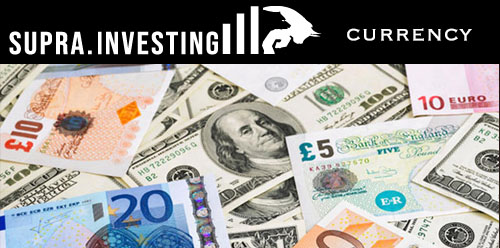Dollar hands back gains after Israeli strike; weekly gains likely

The U.S. dollar handed back early gains Wednesday in volatile action, as traders digested the reported Israeli strikes against Iranian sites and the impact on risk appetite.
At 05:25 ET (09:25 GMT), the Dollar Index, which tracks the greenback against a basket of six other currencies, traded 0.1% lower at 105.870, having earlier climbed as high as 106.190, just marginally below the five-month peak of 106.51 seen earlier in the week.
Dollar hands back gains after Israeli strikes
The safe-haven dollar jumped higher earlier Friday following reports that Israel attacked Iran in an escalation of conflict in the Middle East, just a few days after Iran launched a drone strike on Israel.
This move marks a potential escalation in the Iran-Israel conflict, and could herald worsening geopolitical conditions in the Middle East, especially after initial reports showed strikes near locations holding Iranian nuclear facilities.
However, these gains have since dissipated after Iranian news agencies said there was no damage to the facilities, and the strikes have been seen to be rather limited in size.
That said, the dollar is still likely to post a positive week as strong U.S. economic data and persistent inflation have prompted investors to drastically rethink the chances of the Federal Reserve cutting rates any time soon.
A slew of hawkish comments from Fed officials have also helped the greenback, as evidenced by Atlanta Federal Reserve Bank President Raphael Bostic on Thursday saying that if inflation does not continue to move toward the U.S. central bank's 2% goal, central bankers would need to consider an interest-rate hike.
Sterling edges higher despite weak UK retail sales
In Europe, EUR/USD rose 0.1% to 1.0648, after German producer prices fell less than expected in March, decreasing by 2.9% on the year, compared with a forecast 3.2% decline.
Additionally, Reuters reported the German government will raise its growth forecast for the German economy this year to 0.3%, from a previous forecast of 0.2%.
However, any euro strength may well be temporary with the European Central Bank now expected to cut interest rates before the Federal Reserve in an attempt to give the region’s struggling economies a boost.
GBP/USD climbed 0.1% higher to 1.2445, trading just above five-month lows despite British retail sales stagnating in March.
Sales volumes showed no growth last month, below the expected 0.3% increase, representing the first time that they have not grown in monthly terms since December.
Weakness in retail spending makes it more likely the Bank of England will start cutting interest rates in the summer, probably before the Federal Reserve.
Yen boosted by safe-haven status
In Asia, USD/JPY traded 0.1% lower at 154.47, with the safe-haven yen boosted by the elevated tensions in the Middle East.
The Japanese currency remained near 34-year lows, prompting caution over possible government intervention.
USD/CNY edged 0.1% higher to 7.2417, with the yuan near five-month highs amid uncertainty over the Chinese economy.
